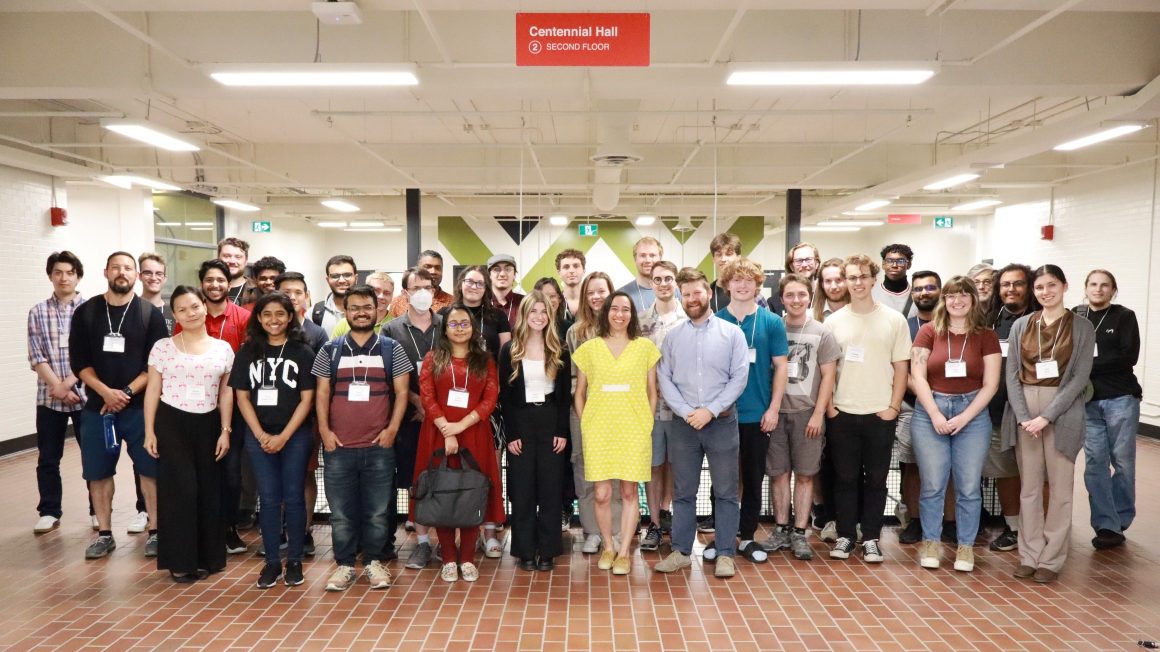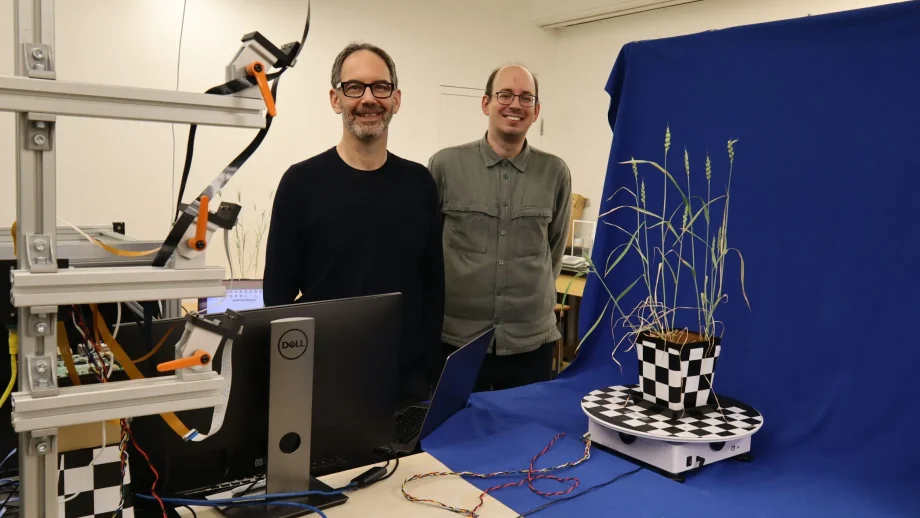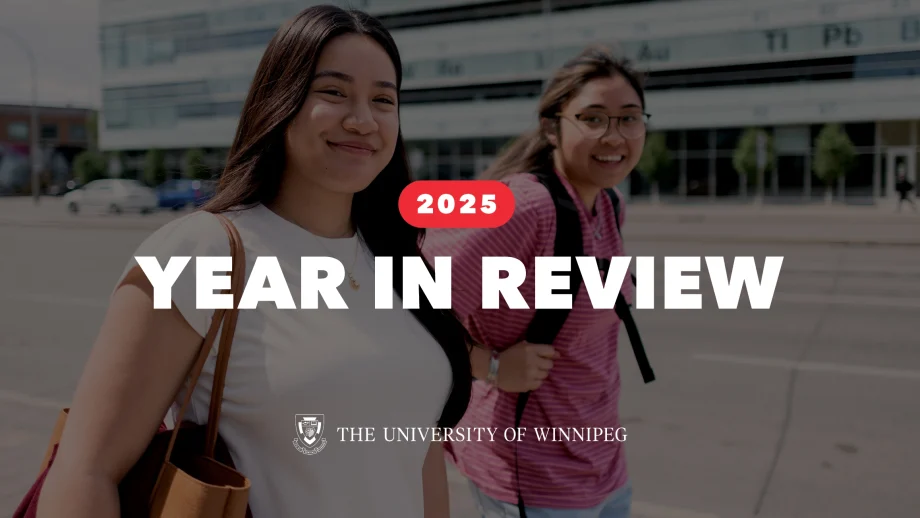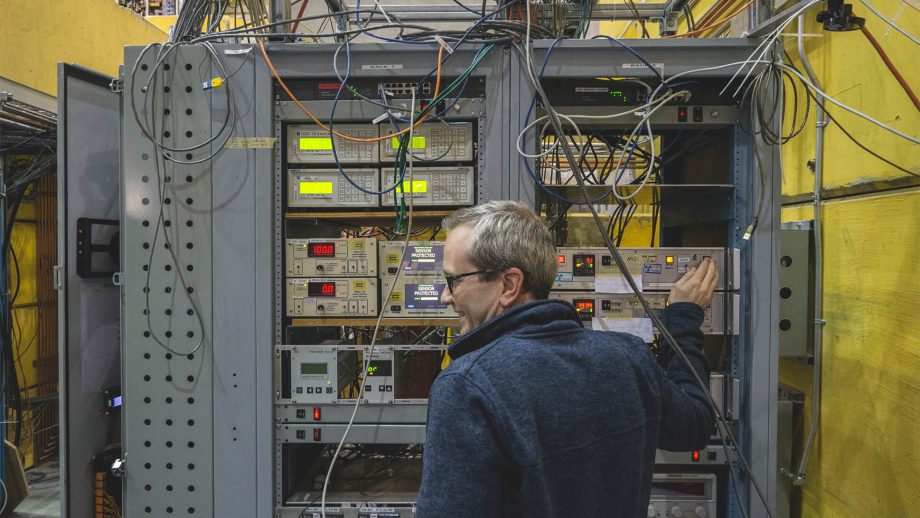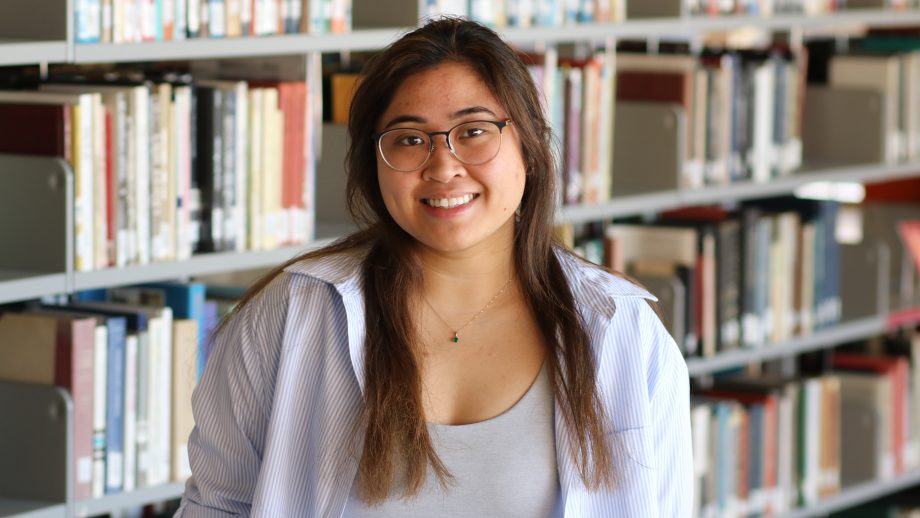Manitoba’s burgeoning theoretical physics community gathered at The University of Winnipeg last week for a whirlwind three-day symposium that discussed everything from dark matter and antimatter to gravitational wave theory and general relativity.
The Winnipeg Institute for Theoretical Physics (WITP) 2024 Summer School and Student Symposium took place August 21-23 in Lockhart Hall. The annual event is a chance for student members to present research in a formal but friendly setting, and be inspired by special guest lecturers.
I enjoyed interacting with the students, who were highly engaged and had many insightful questions.
Dr. Leah Jenks
Nearly 50 students from across the province took part, including 18 who delivered talks. UWinnipeg undergraduate Kyle Wittmeier shared in the three-way tie for best talk, unpacking research he conducted during the Indigenous Summer Scholars Program (ISSP) while holding an Undergraduate Student Research Award (USRA) from the Natural Sciences and Engineering Research Council of Canada (NSERC).
Five distinguished guest lecturers presented at the symposium, including Brown University’s Dr. Stephon Alexander, a prominent physicist, critically acclaimed jazz musician, bestselling author, and CEO of Sound+Science, an after-school program and research lab for high school students in New York City. Dr. Alexander, a past president of the National Society of Black Physicists, arrived in Winnipeg weeks after receiving the U.S. President’s Volunteer Service Award. His lecture focused on the mysteries of dark matter.
“We were very lucky to have Dr. Alexander join us in Winnipeg for a few days,” said Dr. Evan McDonough, Assistant Professor in UWinnipeg’s Department of Physics and WITP’s Director.
Dr. Alexander said he enjoyed his time in Winnipeg.
“Prof. McDonough put together an incredible and insightful workshop,” he said. “I was especially impressed with the wonderful and thought-provoking students, who were inspiring. I remain impressed and inspired by the WITP and The University of Winnipeg.”
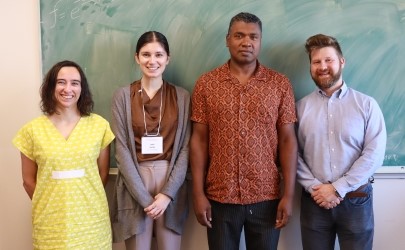
From left: Dr. Seyda Ipek (Carleton University), Dr. Leah Jenks (University of Chicago), Dr. Stephon Alexander (Brown University), and Dr. Evan McDonough (UWinnipeg).
Dr. Seyda Ipek (Carleton University), Dr. Leah Jenks (University of Chicago), Dr. Brad Cownden (University College Dublin), and Dr. Nathan Steinle (University of Manitoba) also delivered stimulating guest lectures.
“The breadth of research at WITP provides an invigorating environment to exchange ideas,” Dr. Ipek, who lectured on matter-antimatter asymmetry, said. “The lively participation by students from different backgrounds made the lectures so much fun! I was especially impressed by the student research presentations.”
Dr. Jenks spoke on gravitational wave theory.
“The symposium was a great event organized by Prof. McDonough and I enjoyed interacting with the students, who were highly engaged and had many insightful questions,” she said.
Funding for the symposium was provided by UWinnipeg and the Perimeter Institute.
About the WITP
The Winnipeg Institute for Theoretical Physics is a consortium of Manitoba-based theoretical physicists working to support theoretical physics research in the province. It facilitates collaboration and financially supports expert seminars and long-term research visits.
WITP membership comprises 28 faculty from UWinnipeg, the University of Manitoba, and Brandon University. The WITP is jointly funded by all three universities, and it is a joint institute of UWinnipeg and UManitoba.
Members work in astrophysics, condensed matter physics, cosmology, gravity, mathematical physics, particle physics, quantum computation, quantum field theory, statistical mechanics, and string theory.
WITP membership is free. Students, research associates, and post-doctoral fellows who work with WITP faculty members are eligible for WITP student or associate membership, which allows participation in all WITP events.

